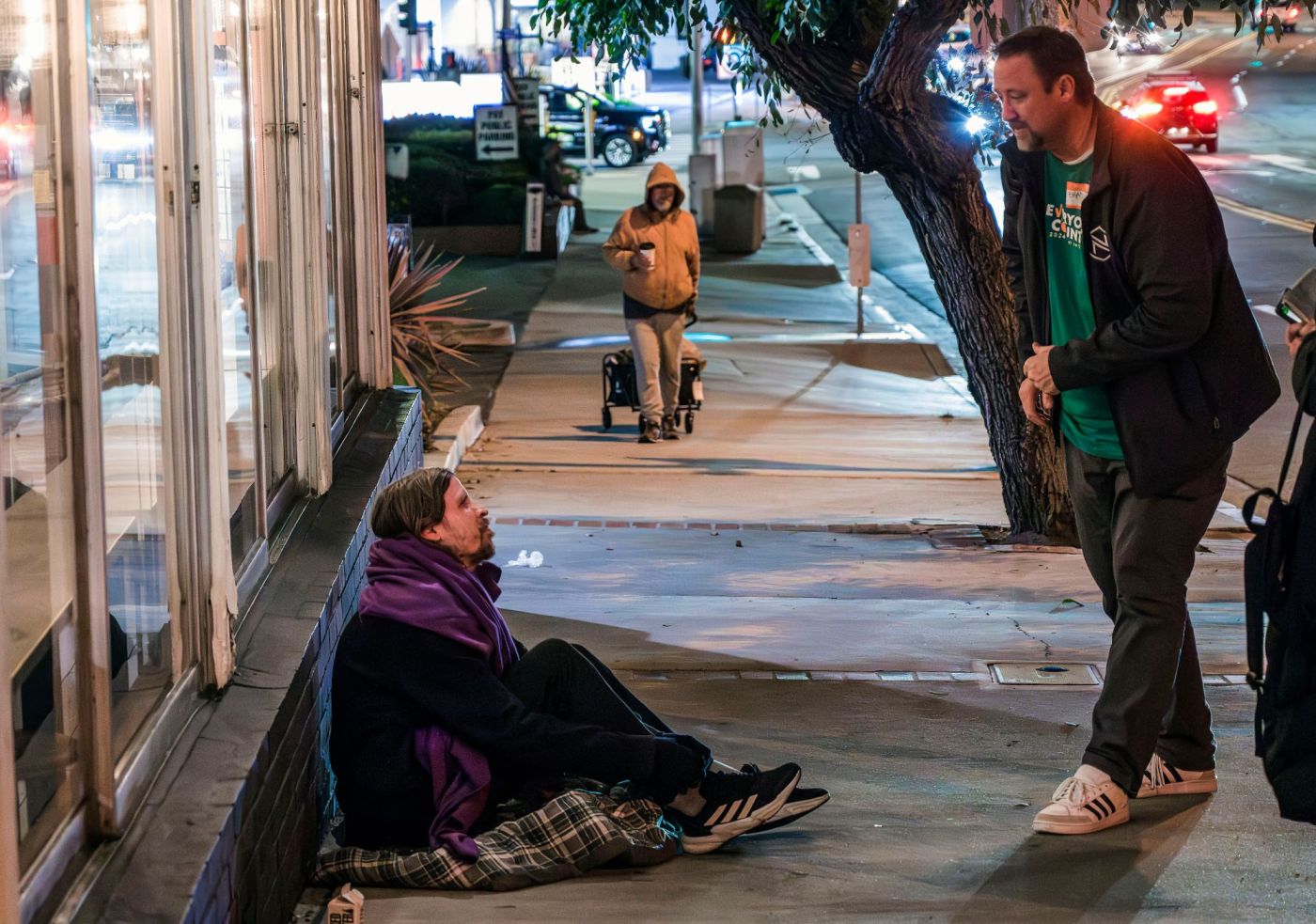
What is ‘chronic homelessness?’ 2 California lawmakers want to redefine it
Will updating the definition of “chronic homelessness” shift the dial on alleviating homelessness?
That is the objective of a bipartisan group of lawmakers behind recent legislation that seeks to amend just who is designated as chronically homeless under the McKinney-Vento Homeless Assistance Act to open up more support for more people.
Enacted in 1987, McKinney-Vento authorizes assistance to people experiencing homelessness, including funding for shelters and temporary housing, permanent supportive housing and access to education for homeless children and youth.
RELATED: This Bay Area county made refusing a shelter bed a crime. Is it helping solve homelessness?
It defines chronically homeless as someone with a disability who lives in a place not meant for someone to live in, a safe haven or an emergency shelter.
To qualify as chronically homeless, a person must have lived in these situations continuously for at least a year or have experienced at least four separate instances of homelessness within the last three years, totaling at least a year, with each break involving at least seven consecutive nights in a different living situation. This definition also applies to someone who has lived in an institutional care facility for fewer than 90 days, as long as they were living in one of the aforementioned places immediately before entering the facility.
The newly introduced federal bill would eliminate the requirement for someone to have experienced at least four separate instances of homelessness within the last three years totaling at least a year from the chronically homeless definition.
It would instead expand it to include people who have experienced homelessness for at least one year — “whether continuously or cumulatively within three years” — according to Rep. Young Kim’s office, to ensure they are eligible to receive support.
The new definition would also include homeless people who’ve lived in transitional housing — different from an institutional care facility — for fewer than 90 days.
RELATED: Homeless San Jose boy dreamed of a bed and a shower. With city program help, his family now has them
Kim, who introduced the legislation along with Reps. Robert Garcia, D-Long Beach; Lori Chavez-DeRemer, R-Oregon; and Brittany Pettersen, D-Colorado, said the legislation “aims to bridge the gap in affordable housing,” another frequently discussed issue in California.
“Rising housing costs only make life harder for our homeless population to get back on their feet. We must ensure our most vulnerable can receive support,” said Kim, an Anaheim Hills Republican.
The proposal would make it easier to count people who are chronically homeless and connect them to the resources they need, said Becks Heyhoe-Khalil, executive director of United to End Homelessness, an initiative of the Orange County United Way that aims to provide housing to homeless people.
“The challenge of counting whether someone has experienced at least four separate occasions of homelessness within the last three years and making sure that there was a grand total of 12 months — that is really difficult to do,” she said.
Not counting time an individual spends in transitional housing as being chronically homeless limits their access to permanent supportive housing, which Heyhoe-Khalil said is the best place someone could be in to resolve their chronic homelessness.
“It’s a horrible situation to be in, being in transitional housing and losing status of chronic homelessness, thus losing access to permanent housing,” said Heyhoe-Khalil. “That person then has to experience homelessness for another 12 months to regain their chronic homelessness status, which is effectively punishing people who are trying to fix their situation.”
“I think having this shift is a really good thing. It’s allowing more flexibility in our system,” she added. “This would allow our system to be much more adaptive to the individual needs of the person and open up different options for them.”
RELATED: Does sleeping on the street make this disabled Bay Area Marine Corps veteran a criminal?
Garcia said expanding the definition of “chronic homelessness” will ensure that “our most vulnerable community members can get the services they need when moving into temporary housing.”
“Experiencing homelessness is already extremely tough, and we need to make sure our government doesn’t let folks slip through the cracks during transition periods,” he said.
The bill is endorsed by the National Alliance to End Homelessness, a nonpartisan, nonprofit organization that addresses homelessness in the U.S.
“The requirement of four separate occasions has inadvertently excluded many people who have been homeless for long periods of time from meeting the definition, making them ineligible for the resources they need most,” the alliance said in a statement.
The legislation has been referred to the Financial Services Committee, where it is awaiting a hearing.


